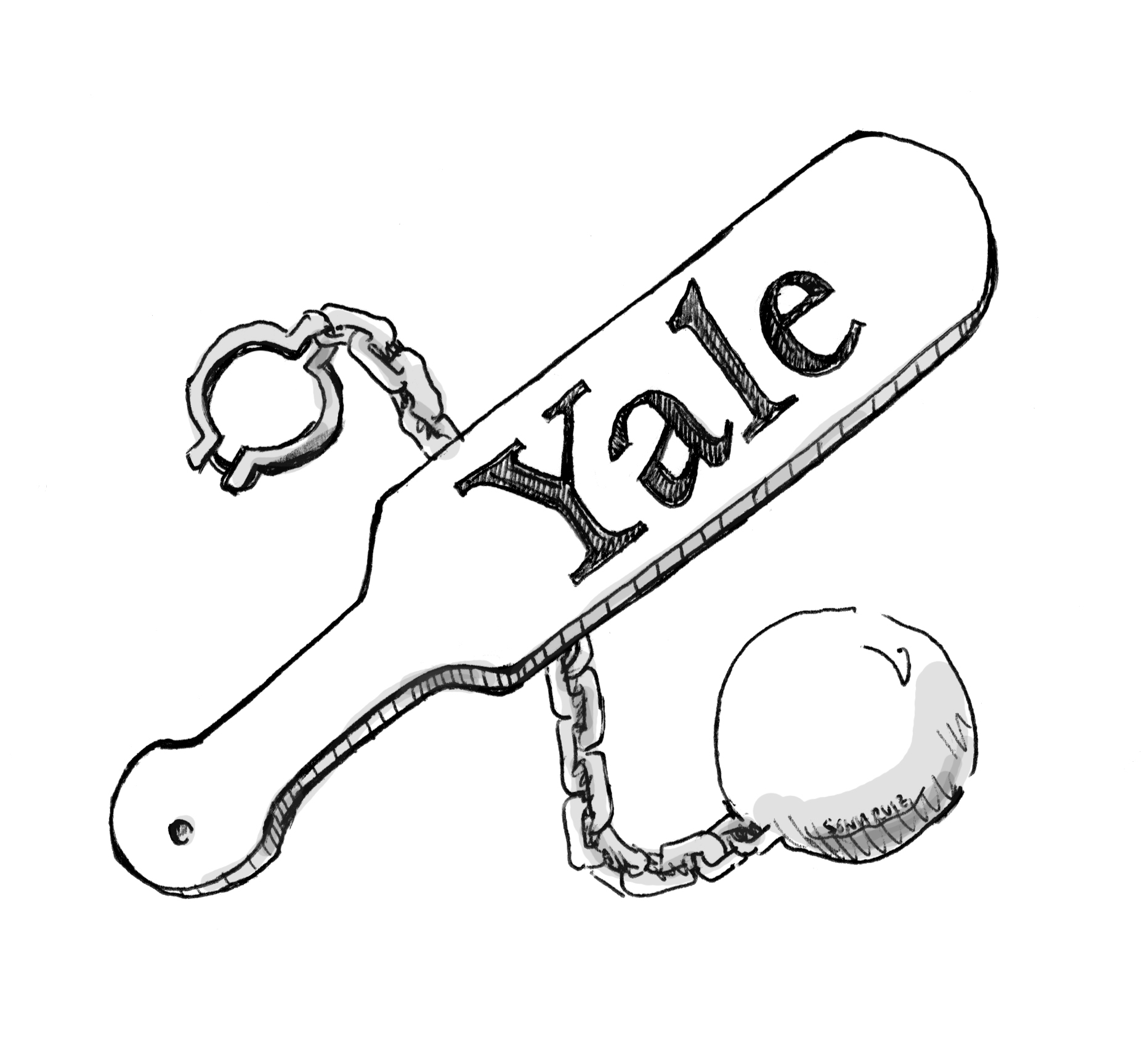
I love pain. You love pain, too. If it were otherwise, we wouldn’t be at Yale — we’d be at some lesser institution, like Harvard or something. No, I’m a masochist, and you are too.
Don’t believe me? Just think about it. Yale is a hard place. Physically, its buildings jut out at us, the Gothic architecture so out of place in southern Connecticut; its wealth screams at us, the opulence so jarring in a city that struggles to pay its bills; its winters torture us, the descent into darkness so ill-timed to our semester’s schedule.
Mentally, it asks us to consider a few basic questions: What should we do with our lives, what does it mean to be successful, what is the meaning of life? At the same time, it asks us the big questions: What should I wear today, what does it mean when my crush reacts to a photo of mine with a heart, what will people think of me if I have a bowl of ice cream for breakfast?
We do all of this to ourselves. We choose to be here. Obviously, Yale is so much more than all of what I described previously. But the fact remains that our being here is seldom easy for far more reasons than those listed above.
And yet, we often make our lives even harder by taking the most challenging classes in difficult configurations, by committing ourselves to organizations that will demand more of us than our classes will, by submitting to a campus culture that idolizes pain. In the course of running for an editorial position on the News (write for us!), I had to meet with several members of the current board. One of those members complained to me so vigorously about the News that I couldn’t help but ask myself — and only myself, as asking this question out loud would be akin to ripping a hole in the fabric of Yale’s reality — “If you’re so unhappy with it, why are you still a part of it?”
And that’s when I realized that this person enjoyed complaining about the organization more than she enjoyed the organization itself. She reveled in how difficult it was to be a member of this organization, in how much time it took from her, in how hard it made her life.
The problem is that, again, this person actively chooses to participate in this organization, just like so many of us and our respective, proverbial paddles. In this way, they, we, are masochistic exhibitionists, performing our pain for all the world to see.
Worse, I’ve realized that those of us who don’t have the strength — or rather, the weakness — to be masochists, choose to be sadists. “I have a meeting today at 4.” “Damn, that sucks!” a friend of mine exclaimed, a gleeful look in her eye. “I’m so glad I don’t have any meetings to go to. I could NEVER be part of an organization that met that often,” she said, failing to consider that I might actually enjoy the work that I was doing, that I might like the people who I worked with, that I might be working with this organization in the name of something greater than my free time between the hours of 4 and 5 on Saturday afternoons.
Little acts of sadism, like the one above, eat away at a person. It’s like dying a death by a thousand cuts. Perhaps your actions don’t seem particularly strenuous, but when this friend and that friend and that acquaintance and this acquaintance all tell you that it’s too much, that they couldn’t do it, don’t know how you do it, you can’t help but start to wonder if it is too much — if you really can do it, really are doing it in the first place.
I have nothing against masochists. I have nothing against sadists. What they want to do in the bedroom — or their minds, rather — is their business. Just don’t push it on me. Don’t push it onto others. Collectively, we must choose to end our culture of masochistic exhibitionism not by refusing to complain, but by evaluating why we are doing something in the first place. Because if our intentions are true, maybe our complaining won’t be so constant, so disingenuous, so annoying. Instead of kink, let us choose kindness, toward others, but most importantly, toward ourselves.
Adrian Rivera is a junior in Jonathan Edwards College. His column runs on alternate Mondays. Contact him at adrian.rivera@yale.edu.







